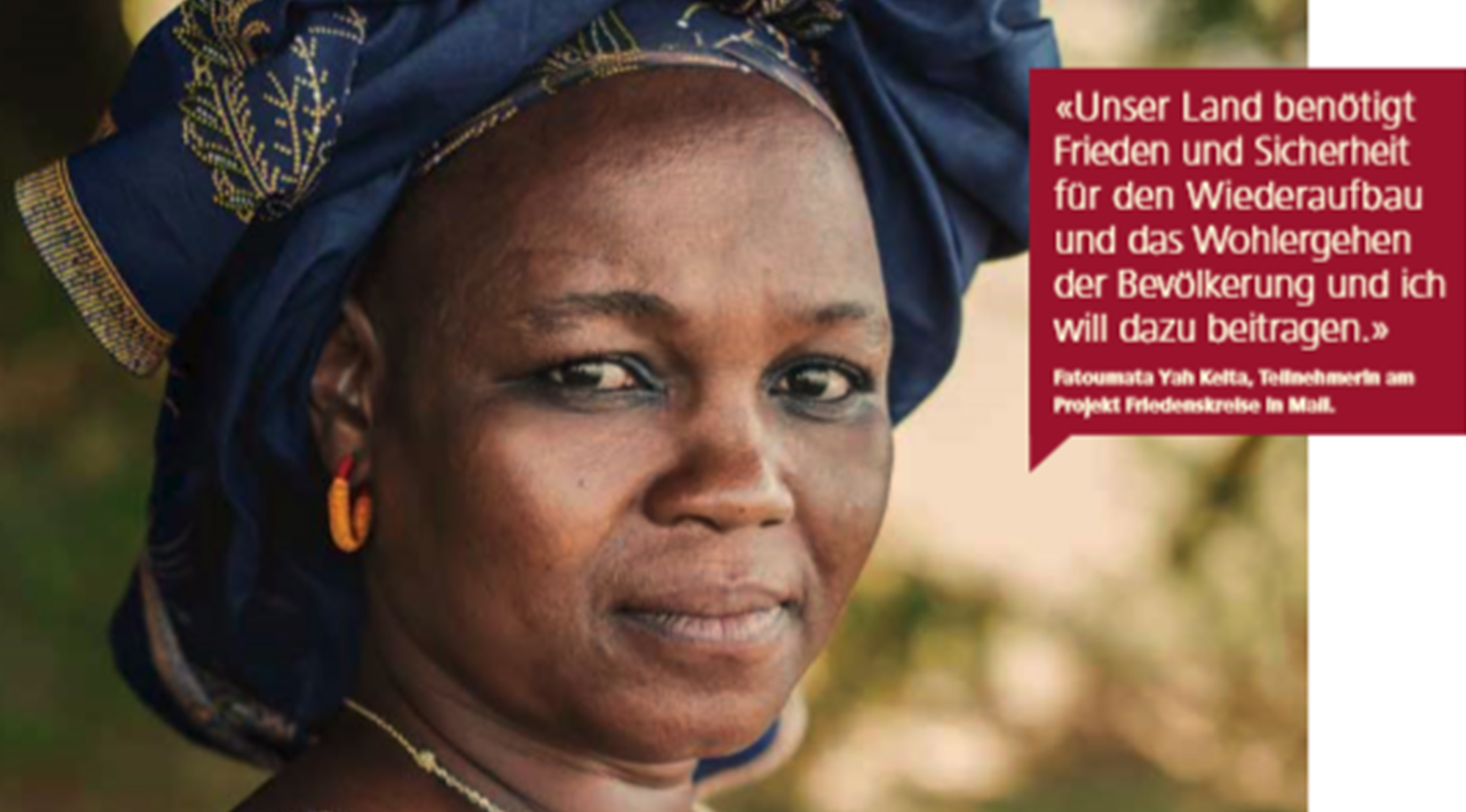With Resolution 1325, the UN Security Council sent out a strong signal. The role of women in wars and peacebuilding had been recognized for the first time: the risk they face of becoming victims of war-related violence, but also their potential as actors in peace processes. As a result, security was no longer understood from a purely military perspective, but rather from that of the individual. The resolution holds member states to account for working towards inclusive peace, personal safety and security, and sustainable development. Switzerland responded to this call as one of the first countries to submit a National Action Plan 1325 (NAP). Now in its fourth version, this NAP was regularly brought in line with international developments, as the range of topics became wider and wider with eight follow-up resolutions.
Protection against sexual violence in conflicts, prosecution of the culprits, and access to justice for victims are all still important areas of action for Switzerland. The country has also consistently emphasized the role of women as experts in conflict prevention and peacebuilding, such as in the Transitional Justice and Reconciliation Commission in the Philippines. Studies have since shown that peace agreements are more sustainable and better enshrined in society if women were involved in their negotiation processes. The fourth NAP 1325 further emphasizes the promotion of women in security policy, which tends to be dominated by men. Switzerland is therefore supporting young women in Europe and Central Asia in their professional careers in the areas of disarmament and arms control or military peacebuilding.
The Swiss NAP is also an example of how the work of the Security Council in New York can be interwoven with the human rights work in Geneva, with one of Switzerland’s foreign policy concerns being to enhance conflict prevention and sustainable peace. The NAP explicitly refers to the recommendations of the CEDAW Committee (promotion of women in mediation, protection of women and girls through a better-controlled arms trade, and gender-sensitive prevention of violent extremism) and thus forms part of the reporting for the legally binding women’s rights convention. In light of this, Switzerland welcomes the agreement between the Special Representative on Sexual Violence in Conflict and the CEDAW Committee.
Almost 20 years after the adoption of Resolution 1325, it is still important that the issue of “Women, Peace, and Security” is taken into account in the Security Council’s policymaking. Countries have a responsibility to fully implement the resolutions and ensure that official, high-caliber political processes are designed to be inclusive. In this sense, Switzerland will continue to advocate visible results in the multilateral debates in New York and Geneva as well as at the OSCE in Vienna and NATO in Brussels.
Since peace, security, and the promotion of gender equality are pillars of Swiss foreign policy, Resolution 1325 is still an important issue for us. Or rather, as the FDFA Strategy on Gender Equality and Women’s Rights puts it: Gender equality is an added value for peace and security.


